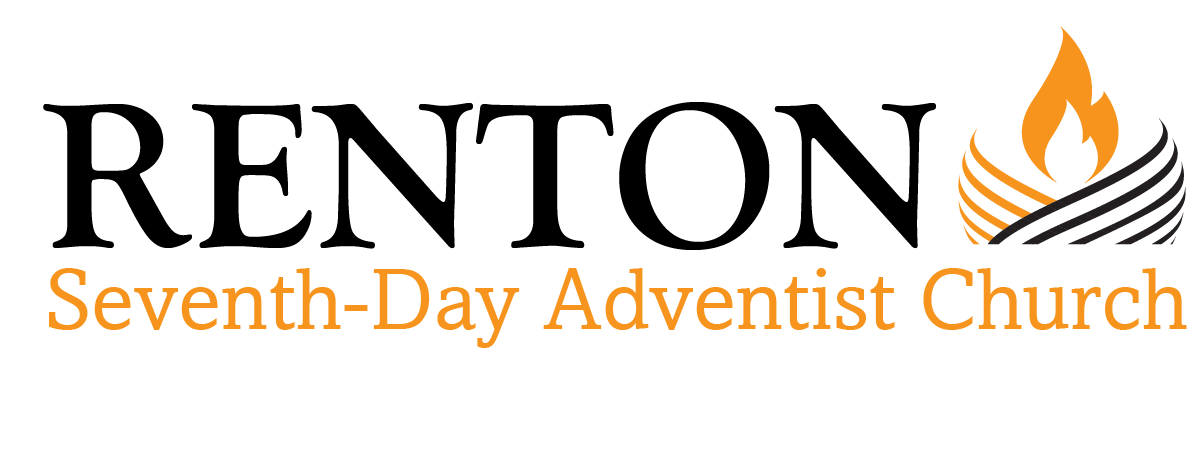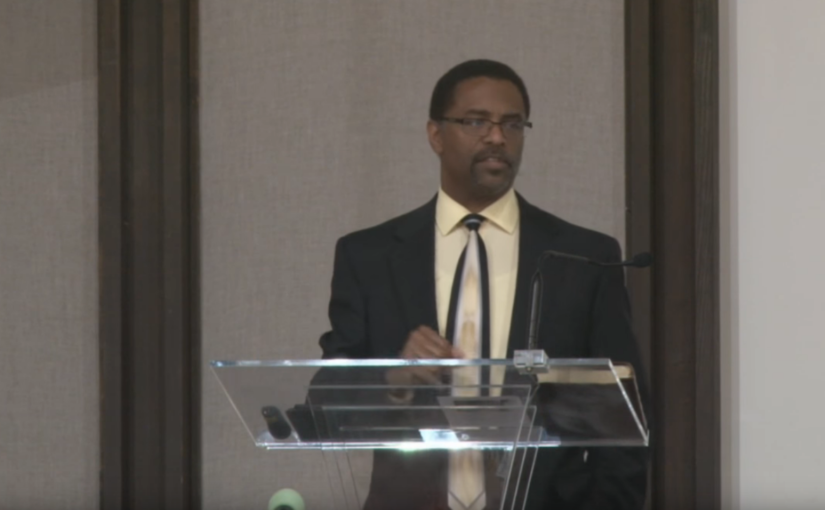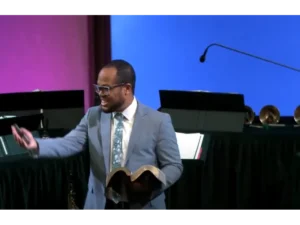We begin a new series entitled, “Jonah: The Rebel Prophet.” More than a fish story, Jonah gives us a clear picture of how God deals with rebels—those who don’t know Him and those who do.
A bird’s eye view of the book provides us with this simple outline:
Jonah 1: Running from God. Jonah’s first commission from God. Results of disobedience.
Jonah 2: Running to God. Prayer of Jonah. Results of communication with God.
Jonah 3: Running with God. Second commission of Jonah. Results of obedience.
Jonah 4: Running against God. Prejudice of Jonah. Lessons from the Lord.
Rewind to Jonah 1. The wickedness of Nineveh is not detailed in Jonah’s book, but in Nahum’s. Read Nahum 3:1-3, 19. Nineveh was fast becoming the capitol of the Assyrian empire, legendary for its savage cruelty.
So, when God tells Jonah to go preach against Nineveh, Jonah rejects the call. The Assyrians were “those people over there” who were outside of the favor, blessing, and mercy of God. But the book of Jonah shows that no one—not the profligate or the prophet—is outside the reach of God’s mercy.
Jonah was being called to do something other than maintain the status quo. It was an inconvenient call. Are you just as ready to follow God when it’s inconvenient as when it’s not? Revival never comes in the context of what’s comfortable, but what’s commanded.
Madeleine L’Engle writes, “We are not all called to go to El Salvador, or Moscow, or Calcutta, or even the slums of New York, but none of us will escape the moment when we have to decide whether to withdraw, to play it safe, or to act on what we prayerfully believe to be right.”
But Jonah wanted retreat not revival, so he “ran away from the Lord and headed for Tarshish” (vs. 3)—some 2,600 miles in the opposite direction from Nineveh. The verse says he went “down” to Joppa. Whenever you head in a direction that is opposite the Lord’s plan for your life, you are going “down.”
Someone should have told Jonah that his legs were too short to outrun God! If from heaven He saw the wickedness of Nineveh and tapped Jonah on the shoulder to go preach there, He would surely see him on a ship to Tarshish! Even in our rebellion, God’s eye is on us! (See Psalm 139:7-10.) If hell can’t keep us from His presence, neither can our hard-headedness!
Nevertheless, Jonah ran. And we all run at some point. Afraid of what God might ask us to do—of how he might change our lives.
The Communicator’s Commentary says, “Our Nineveh’s are those clear revelations of the will of God. Nineveh can be simply the Lord’s urging that we change our behavior or do some obedient action that demands more than we are ready to give. Whatever else, Nineveh is the call of God sounding in our hearts to put Him first, be His person, and accept our vocation to be servants in mission.”
Tarshish is the place of delay, excuse, and avoidance. Some of us will run off in all directions except God’s. You think it’s hard to preach in a wicked city? What about when Jesus asks us to apologize? What’s your Nineveh? And What is your Tarshish? In what direction are you running today?
“Then the Lord sent a great wind on the sea, and such a violent storm arose that the ship threatened to break up.” (vs. 4) Everyone was afraid, and they began to pray to their gods. Storms have a way of producing prayer! Yahweh, the only and true God was not called upon to help because none of the pagan sailors knew Him. The only person on board who did know Yahweh was asleep in the belly of the ship trying to sleep off the calling he had rejected.
Is this a description of the church? Going where God never said to go, fighting over things God never told us to fight over, and sleeping when lives were in mortal danger. The lives of multiplied millions are in hanging in the balance…where’s the church? Is it sleeping instead of saving? Are we where God told us to be? Are we doing what God told us to do?
The captain found the snoring prophet and asked, “How can you sleep? Get up and call on your god! Maybe he will take notice of us, and we will not perish.” (vs. 6) This is the cry of the world to the church: “Wake up and pray! How can you sleep now?”
Jonah was the chosen instrument of salvation, but he wasn’t doing his job. When the church does not do its job as an intercessor it becomes a danger to itself and to those it is called to save.
As evil and wickedness increase, where are God’s people? As Goliath struts the plain, where is God’s David? Yes, I see the terrorists terrorizing. I see the gangs ganging, thieves thieving, and politicians politicking, but are the intercessors interceding? “I looked for a man among them who would build up the wall and stand before me in the gap on behalf of the land so I wouldn’t have to destroy it, but I found none” (Ezek. 22:30). Our responsibility as Christians goes beyond knowing about the end times; it includes interceding for those who do not.
Rewind to verse 8 and ponder the questions put to Jonah by the sailors. The question is how could Jonah know what he knew and yet do what he did? Don’t ask it of Jonah if you aren’t willing to ask it of yourself. How can we, also chosen people of promise, worshippers of the true God of heaven, recipients of the light and truth for these times, know what we know and yet do what we do?
Jonah was a rebel prophet running away from the God who sees. God’s grace allows us to make our choice, but He relentlessly pursues and gives us every opportunity to make the right one. Is there a choice you need to make for God today?
Pastor Randy Maxwell
Going Deeper
- Read all 48 verses of Jonah in one sitting. Who is the hero of the book and why? What is the overarching theme? (See Jonah 2:9; 4:2)
- Who are you prejudiced against?
- Why doesn’t revival come in the context of what’s comfortable? Are you “devoted” even when it’s inconvenient?
- What’s your Nineveh? What’s your Tarshish?




